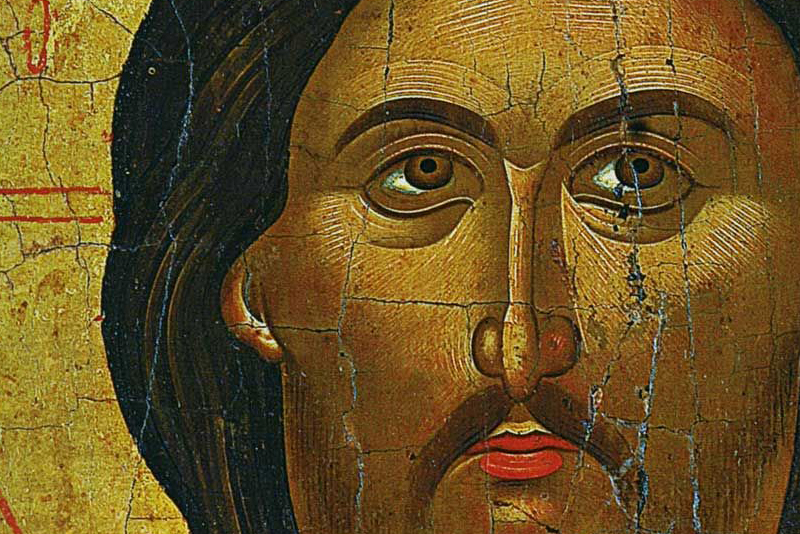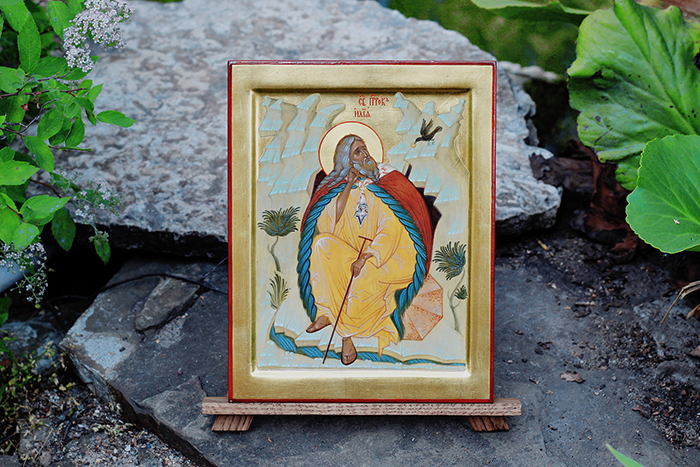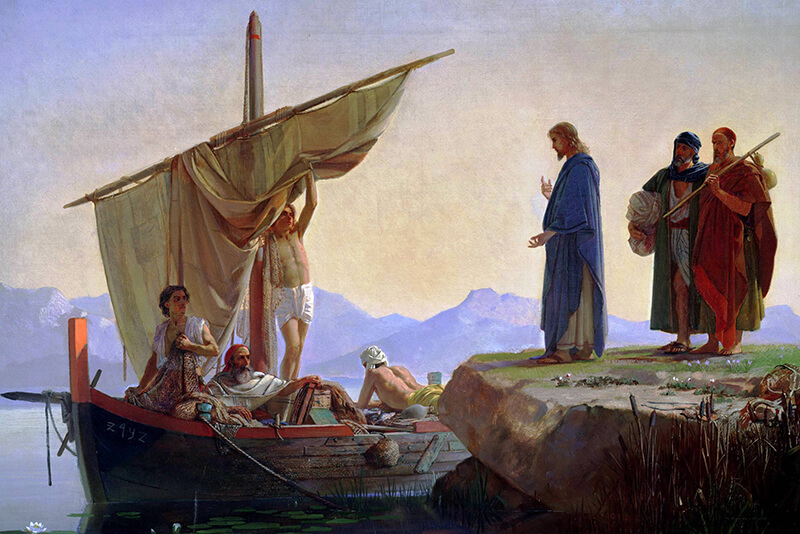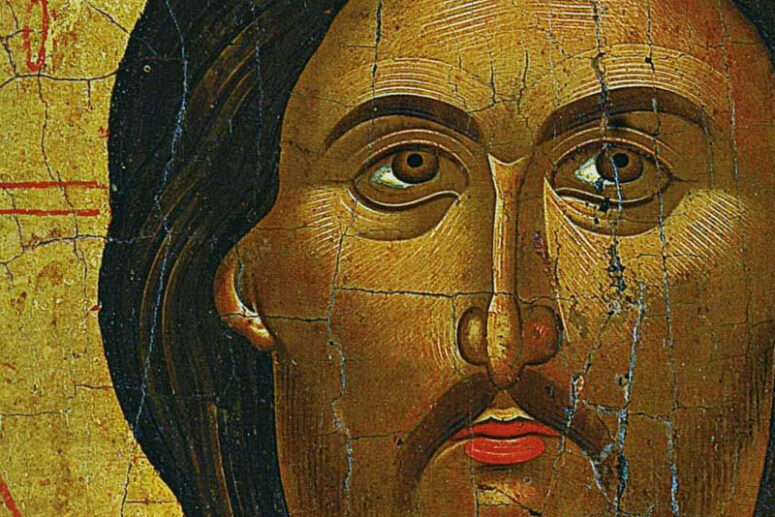
Mark 8: 22-26
Heb. 9: 8-10, 15-23
In the name of the Father and the Son and the Holy Spirit!
Once, the Lord healed a blind man. This time, in doing so He performed seven actions: He “took the blind man by the hand”, “led him out of the village”, “spat on his eyes”, “asked him” if he sees anything, “again laid his hands on his eyes”, “made him look up” and “sent him home”. This is the archetype of the history of our salvation, which is painful, like everything else in the world, and does not happen instantly. The first thing that God did then is the same thing that he does to the blind today — He takes them by the hand “to lead them out of the land of Egypt” (Jer. 31:32).
After the first healing, the blind man said, “I see people, but they look like trees, walking.” It’s good to see at least something! But seeing people as trees is the same as not seeing them at all. A parallel can be drawn here with the Old Testament temple, or the Tabernacle, showing God’s presence on the one hand, and, yet, keeping Him reachless. The Apostle reminds us that only the High Priest could enter the Holy of Holies, and only once a year. By this “the Holy Spirit indicates that the way into these holy places is not yet opened” for the entire people”, nor will it be, “as long as the first tabernacle stands”. “This is the illustration of the present (pre-Christian) time.” This is also an embodiment of powerlessness. “Gifts and sacrifices” are offered constantly, but the blood of the sacrificial animals can never “perfect the conscience of the worshiper”. Quantity never turns into quality, so everything will be “like trees” “until the time of reformation”, the time of the new covenant, the second and the final healing.
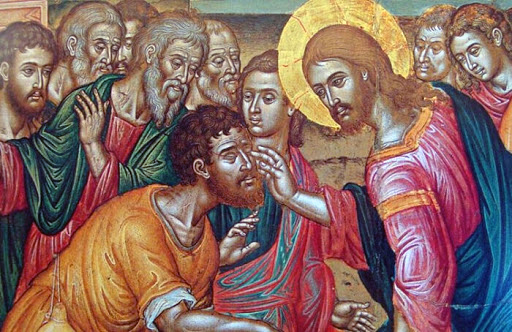
The word testament is related to the word will. And “where a will exists, the death of the one who made it must be established”. “It is never in force while the one who made it is living.” Blood is the graphic expression of death. “Even the first covenant was not inaugurated without blood”. “For when every commandment had been spoken by Moses,” “he took the blood of the calves and the goats,” “and sprinkled both the book itself and all the people, saying, “This is the blood of the covenant that God commanded for you”. But Moses is not called a “mediator”.
Jesus Christ is the only One whom The Apostle Paul calls “the mediator of the new testament”, where the mediator is understood as a messenger, interceding for us before God and being, at the same time, the Testator Himself. He reminds us that through His death we “may receive the promise of the eternal inheritance” that we are called to. He is our only Mediator before God. For “if a man sins against the LORD, who can intercede for him?” (1 Sam. 2: 25) According to the Prophet Isaiah, the Lord, “bore the sin of many, and interceded for the transgressors” (Is.53: 12).
It is necessary, however, that the actual “blind man” does not confuse “in his conscience” the walking trees with the real people, so that he may have that second healing of the Lord, after which the Biblical blind man was “healed, and began to see everything clearly”. For indeed, there are many spiritually half-blind, and yet self-confident and self-righteous people, not wishing to see any clearer.
Translated by The Catalogue of Good Deeds
Source: https://azbyka.ru/otechnik/Vyacheslav_Reznikov/propovedi-na-kazhdyj-den/37_2

